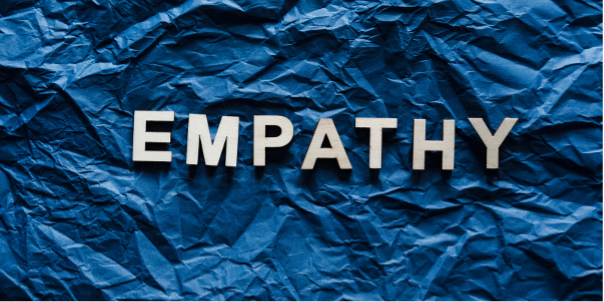A few years ago, I remember asking my partner why he didn’t ‘Google it’ before deciding to rip out the wall of our internal stairwell, douse it in insect spray and wrap what remained in cling wrap.
Why? He had discovered termite damage.
It was only when he did ask Google that he discovered he should have left it alone and called in the experts.
This lack of curiosity had consequences, and why it happened is entirely understandable.
In the book I, Human: AI, Automation and the Quest to Reclaim What Makes Us Unique, psychologist Tomas Chamorro-Premuzic explains our evolutionary history provides little incentive for us to develop our curiosity.
Curious hunter-gatherers had an increased risk of getting lost, being left behind by the tribe or bringing back less-than-welcome diseases and parasites the tribe’s immune systems were unprepared to cope with.
We may still want to avoid novel viruses, but the world we live in today is extremely different.
Every year this is highlighted at the World Economic Forum’s annual meeting, known as Davos, which brings together a select group of decision-makers from across the world to debate global issues.
In 2024, McKinsey’s Davos commentators reported that the overwhelming buzz around generative AI dominated many of the sessions.
Are you curious about how you will be affected as highly motivated global leaders begin to unlock an extraordinary $2.6 to $4.4 trillion in potential additional annual value from Generative AI across industries?

If you want to know more, the World Economic Forum and McKinsey have released the Global Cooperation Barometer 2024 Insight Report.
There may be a huge gap between the Davos world stage and you, but it’s a mistake to ignore the personal implications if you or your loved ones want a career in the future.
Artificial intelligence (AI) is already deeply embedded in our lives, and it’s getting smarter and ever more pervasive.
And unfortunately, just being generally curious won’t cut it.
What can you start doing to prepare?
First, understand how generative AI is evolving and what it excels at, i.e. making predictions based on the identification of patterns. AI is obsessed with learning, and with quality data, it will identify and learn patterns quicker than you and deliver more reliable results.
So, avoid putting all your eggs in that basket and explore how you can leverage the strength of AI to increase your impact. If you’re not using AI tools in intentional ways, you need to start learning how NOW!
Then, look for opportunities to develop your curiosity where AI is unlikely to dominate.
In an interview, futurist Martin Ford shared how as AI replaces jobs, new jobs will be created that require new skills, which will demand curiosity or what has also been described as learnability.
When truly open to learning, we turn off our auto-pilot and intentionally slow down our thinking to be more curious about our actions, biases and assumptions, motivations OR how and why we and others naturally make sense of things.

Ten years ago, a Google Engineer reported that since Google had existed, only fifteen percent of submitted queries every year had never been seen before. This trend provides insight into our tendency to exercise curiosity by asking routine rather than deeply curious questions.
It’s the curiosity equivalent of jogging on a treadmill – lots of motion, but you’re not going anywhere new.
Remember, generative AI can quickly compile a list of options for how to do something. Still, it cannot, at present, demonstrate true empathy and understanding about why we should choose one option over another.
That hit home for me this week when undertaking a consulting engagement.
The document review identified issues to explore. However, when interviews started, and people were sharing their experiences, the need to do what AI cannot yet do became clear, i.e. be human and seek to understand with empathy so you can determine what’s the next right thing to do in that context.
So, what’s the one thing you should do to prepare?
Hone your instincts. Practice tapping into your empathy and your desire to understand, so you’re asking better and deeper questions to stay one step ahead of generative AI.
As Marie Curie said, “Nothing in life is to be feared, it is only to be understood.”







